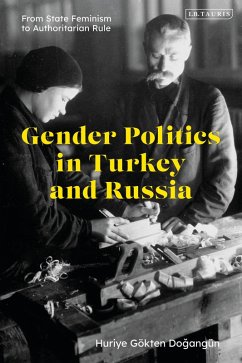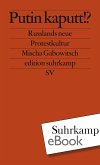Both Russia and Turkey were pioneering examples of feminism in the early 20th Century, when the Bolshevik and Republican states embraced an ideology of women's equality. Yet now these countries have drifted towards authoritarianism and the concept of gender is being invoked to reinforce tradition, nationalism and to oppose Western culture. Gökten Dogangün's book explores the relationship between the state and gender equality in Russia and Turkey, covering the Bolshevik Revolution of 1917 and the Republican Revolution of 1923 and highlighting the very different gender climates that have emerged under the leaderships of Putin and Erdogan.
The research is based on analysis of legal documents, statistical data and reports, as well as in-depth interviews with experts, activists and public officials. Dogangün identifies a climate of 'neo-traditionalism' in contemporary Russia and 'neo-conservatism' in contemporary Turkey and examines how Putin and Erdogan's ambitions to ensure political stability, security and legitimacy are achieved by promoting commonly held 'family values', grounded in religion and tradition. The book reveals what it means to be a woman in Turkey and Russia today and covers key topics such as hostility towards feminism, women's employment, domestic violence, motherhood and abortion. Dogangün provides the first comparative study that seeks to understand the escalation of patriarchy and the decline of democracy which is being witnessed across the world.
The research is based on analysis of legal documents, statistical data and reports, as well as in-depth interviews with experts, activists and public officials. Dogangün identifies a climate of 'neo-traditionalism' in contemporary Russia and 'neo-conservatism' in contemporary Turkey and examines how Putin and Erdogan's ambitions to ensure political stability, security and legitimacy are achieved by promoting commonly held 'family values', grounded in religion and tradition. The book reveals what it means to be a woman in Turkey and Russia today and covers key topics such as hostility towards feminism, women's employment, domestic violence, motherhood and abortion. Dogangün provides the first comparative study that seeks to understand the escalation of patriarchy and the decline of democracy which is being witnessed across the world.


